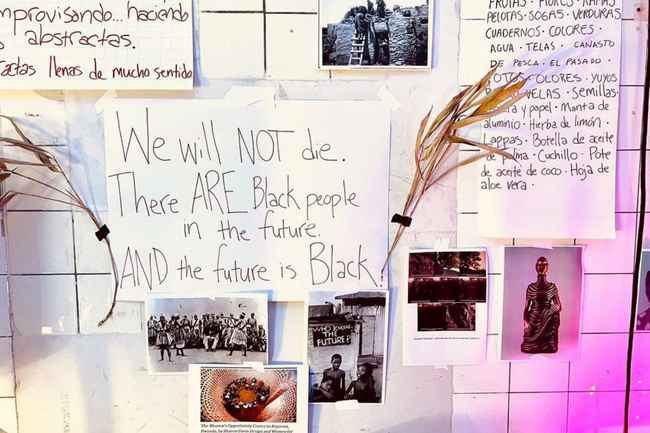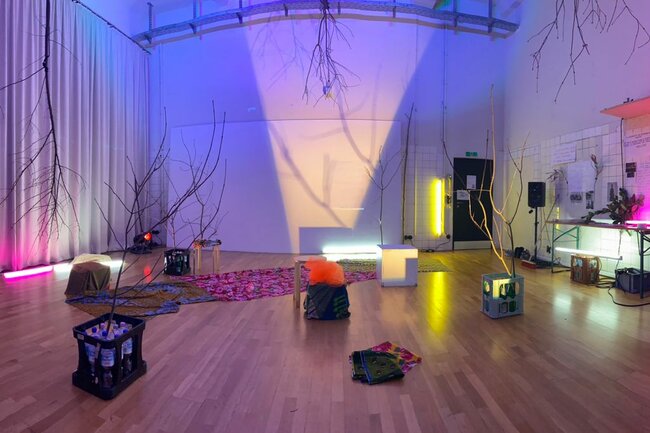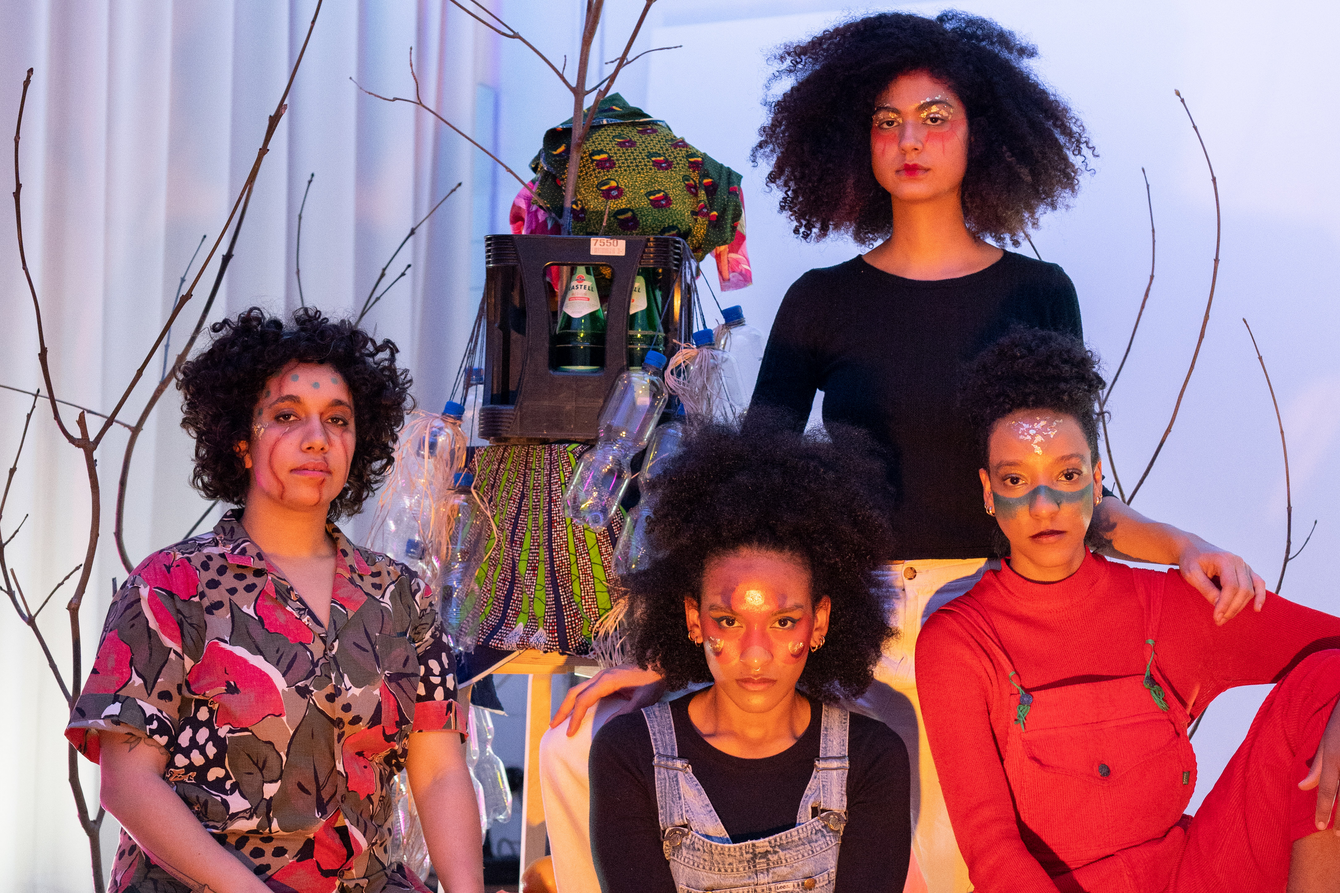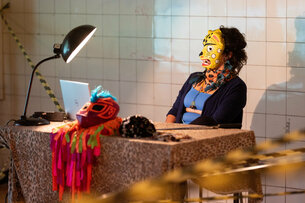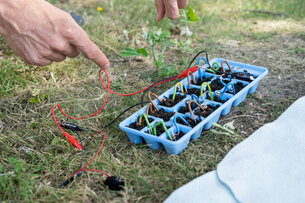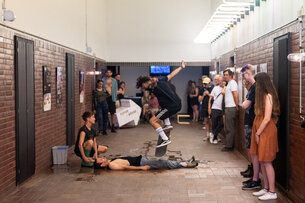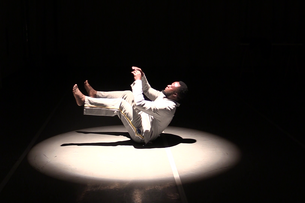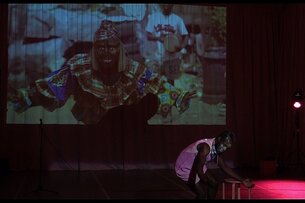#ResidencyInsights
Kukily Colectivo
by
Kukily Colectivo
Themen
Residenzen
»Our residency at PACT was an exciting and intense period of work on our new project XTRÆNCESTRAL, set to premiere at the Lagos Biennial in February 2024. It was also a time to come together and work on our body-based performance practice, after several years of long-distance artistic processes.
We are Kukily, an afrofeminist arts collective working transnationally and in multidisciplinary formats such as performance, installation, film, community-based work and cultural production. 4 individuals, Colleen Ndemeh Fitzgerald, Jasmin Sánchez, Julia Cohen Ribeiro, and Lina Lasso, creating together for the last 7 years. Our work crosses borders and the concept of diaspora is central to our work. We met in Argentina, a territory that marked the beginning of our journey together as a collective. Our countries of origin include Argentina, Brazil, Colombia, the US, and Liberia. Over the years we have crossed borders and changed residences, and currently Colleen is based in Berlin, Germany; Jasmin in Rio de Janeiro, Brazil; and Julia and Lina in Buenos Aires, Argentina.
When we met at PACT for 3 weeks, we were focused on creating the performance activations that will be part of the multidisciplinary installation that is XTRÆNCESTRAL. In a few words this project creates a literal and figurative space to process our collective memory as African descendant peoples and project ourselves into the future. But much more than this, XTRÆNCESTRAL is a whole philosophy Kukily has created from an afro-futurist vision. Unlike the typical Western imagined dystopian future, in the one we propose the traditional is in constant dialogue with the experimental; the hereditary with the new; the natural with the technological. In our nonlinear African time, the future and past exist simultaneously in the present, and our ancestors share space with us. There is no destruction of the natural world because we understand it to be an inseparable part of us. We understand that Indigenous and African knowledge is essential when we talk about climate change!
Our body-based research at PACT sought to transfer conceptual and philosophical ideas about African ancestrality into our bodies as performers. Our bodies hold the past as muscle memories, so our creative process used performance-making tools to guide us in “remembering”. We shared personal experiences and our diverse knowledge—not only do we come from very different experiences of the African diaspora, but we also come from different artistic disciplines including dance, theater and film. Our research practice included moving, writing, drawing and imagining. We created a whole world with our bodies and the design of our studio space. The process also included living together in our flat in Essen, sharing recipes from our homes, listening to music and dancing together.
At the same time going to PACT and now having returned home and reflecting on our experience a lot of questions arrive. What meant to be in that place specifically? We didn’t choose to go to Essen but being there left a mark on us and in our work. We discovered the black community in Germany and even in Essen which was a surprise. We went to museums and saw so many objects and African history and the processes that are taking place - how colonial spaces transformed those objects and now they carry a different weight and symbolism. What does coming back home mean? What does it mean to leave our home, our continent and go to the empires to work on our roots there? How
does that transform our work and the spaces we occupy? What memories are activated in our bodies walking those streets and those palaces turned into museums?
We end this diary entry by quoting ourselves, with the hope that we can portray the urgency of our work:
›Projecting ourselves into the future is political, especially in the current global context of fascism, imperialism, patriarchy, and multiple crises that puts Black bodies in danger. In doing this we are saying We will not die. There are Black people in the future. And the future is Black.«
